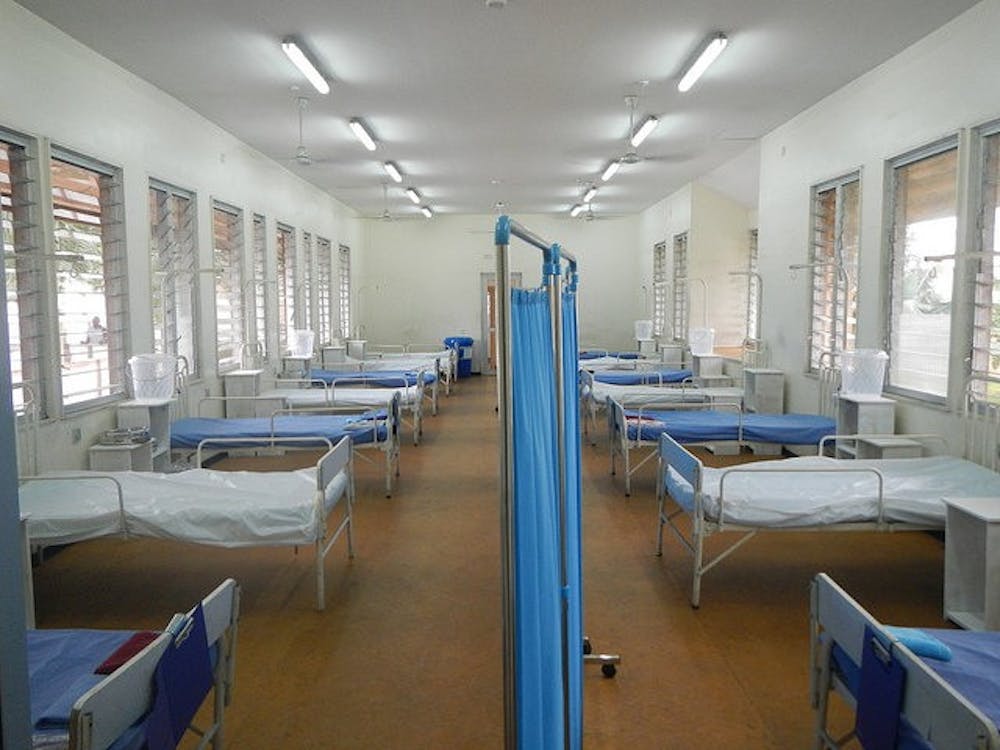By Hannah Haney | Echo
The world is in a panic. And not without good reason.
The current strain of Ebola has a 70% fatality rate, according to a report by The Disease Daily. People are dying and no one knows how to get it under control. What's even scarier is that Ebola symptoms don't look that different from the flu: fever, headache, muscle pain, weakness, vomiting, diarrhea, etc.
According to an article by news organization CBC, the deadly Ebola virus has claimed over 4,700 lives thus far.
The World Health Organization (WHO) reported last week that the number of new Ebola cases in West Africa could rise to 5,000-10,000 per week. The virus is prominent in Guinea, Liberia and Sierra Leone. It had been seen in Nigeria, but the country was cleared of the virus as of Oct. 20, according to WHO. Other countries affected include Spain and the U.S.
America didn't truly panic about Ebola until a man in Texas died. Two of the nurses that cared for him contracted the virus, and one nurse traveled to Ohio the day before her diagnosis. And now, we are all concerned about the possibility of contracting the virus.
We probably won't.
Here's the deal. Ebola is deadly but harder to spread than media might have you believe. You are only able to contract it if you come into contact with blood or bodily fluids (urine, saliva, sweat, vomit, all that fun) of an infected person. That's it. It doesn't spread by air. It doesn't spread by water. So unless you are cleaning up vomit from an Ebola patient, you are probably going to be fine.
This is what makes me sad about this whole scenario. Three people in the U.S contract Ebola, and we fall into chaos, obsessing over the cases here and forgetting the thousands across the ocean. The WHO reports that 20,000 people will probably be infected by November. That's in about a week. Twenty thousand human beings will come down with a disease that will probably kill them because they don't have access to appropriate health care. Most of these cases are going to be in West Africa. According to statistics, for every four Ebola cases reported from West Africa, there are six that we don't know about.
We did not care about Ebola in West Africa before it came to the U.S., and we do not care about Ebola in West Africa now. I know it sounds harsh, but it's true. In fact, when we talk about Ebola in West Africa, it's within the context of whether or not we should be closing our borders. Really? How uncompassionate have we become? Instead of trying to send more aid to places like Sierra Leone or Guinea or Liberia, we want to close our own borders until the crisis has calmed down.
Jesus loved the lepers, the people who were so ill that they had to leave the city and were sent to die outside the gates. Sound familiar? People who came down with a disease that was a death sentence, so they became outcasts? The people in the city forgot about them. But not Jesus. No, he went out and healed them.
He went out and loved them.
So what are we doing?
Ladies and gentlemen, it's time for a perspective shift. These people in West Africa have homes and families, just like the Americans who have been affected. Why don't we care about their lives as much as the ones here at home?
People in West Africa have everything to lose-just as we do.





